Oh frozen food, you are so helpful during investigations of foodborne illness.
The U.S. Centers for Disease Control reported last night, in its best CDC-speak,
“Collaborative investigative efforts of state, local, and federal public health and regulatory agencies have linked this outbreak to eating turkey burgers. Investigators were not able to determine consumption of turkey burgers for all case-patients. However, FSIS determined that at least three of the case-patients in Colorado, Ohio, and Wisconsin specifically reported eating Jennie-O Turkey burgers the week before their illness began. Samples of Jennie-O ground turkey burgers were collected by public health agencies 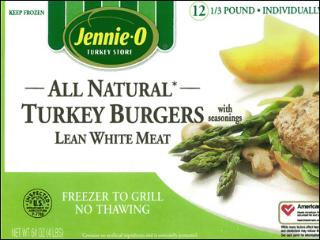 from the homes of case-patients in Colorado and Wisconsin who tested positive for the outbreak strain of Salmonella Hadar. Both turkey burger samples were positive for the outbreak strain. States have reported antibiotic resistance of the outbreak strain to several clinically useful drugs including ampicillin, amoxicillin/clavulanate, cephalothin, and tetracycline.
from the homes of case-patients in Colorado and Wisconsin who tested positive for the outbreak strain of Salmonella Hadar. Both turkey burger samples were positive for the outbreak strain. States have reported antibiotic resistance of the outbreak strain to several clinically useful drugs including ampicillin, amoxicillin/clavulanate, cephalothin, and tetracycline.
"As of April 1, 2011, 12 persons infected with the outbreak strain of Salmonella Hadar have been reported from 10 states: Arizona (1 case), California (1 case), Colorado (1 case), Georgia (1 case), Illinois (1 case), Missouri (1 case), Mississippi (1 case), Ohio (1 case), Washington (1 case), and Wisconsin (3 cases). Isolation dates range from December 27, 2010 to March 24, 2011. Ill persons range in age from 1 year to 86 years old, with a median age of 29 years old. Sixty-three percent are female. Among the 12 ill persons with available information, three have been hospitalized. No deaths have been reported."

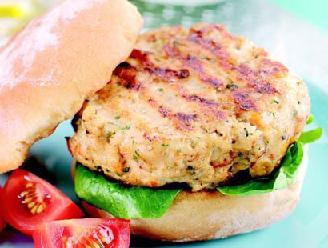 burgers or thingies have reached a safe temperature; color is a lousy indicator of safety. That’s why it’s important to reduce loads of dangerous microorganisms in foods before they reach the food service or home kitchen.
burgers or thingies have reached a safe temperature; color is a lousy indicator of safety. That’s why it’s important to reduce loads of dangerous microorganisms in foods before they reach the food service or home kitchen.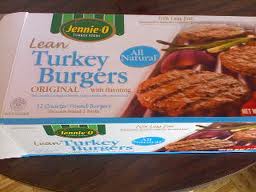 inspection on the front of each box. The products were packaged on Nov. 23, 2010 and were distributed to retail establishments nationwide.
inspection on the front of each box. The products were packaged on Nov. 23, 2010 and were distributed to retail establishments nationwide.(12).jpg) Standards good, extrapolations based on … who knows what, bad.
Standards good, extrapolations based on … who knows what, bad..jpg) drive the industry to do better. They are tough but achievable. And when fully implemented, they will prevent tens of thousands of Americans from getting sick."
drive the industry to do better. They are tough but achievable. And when fully implemented, they will prevent tens of thousands of Americans from getting sick." the roughly 13,154 kilograms of frozen turkey carcasses to be re-introduced into the food chain.
the roughly 13,154 kilograms of frozen turkey carcasses to be re-introduced into the food chain..jpeg) he had eaten some of the turkeys and no one got sick," Akerstream said.
he had eaten some of the turkeys and no one got sick," Akerstream said. do further damage:
do further damage: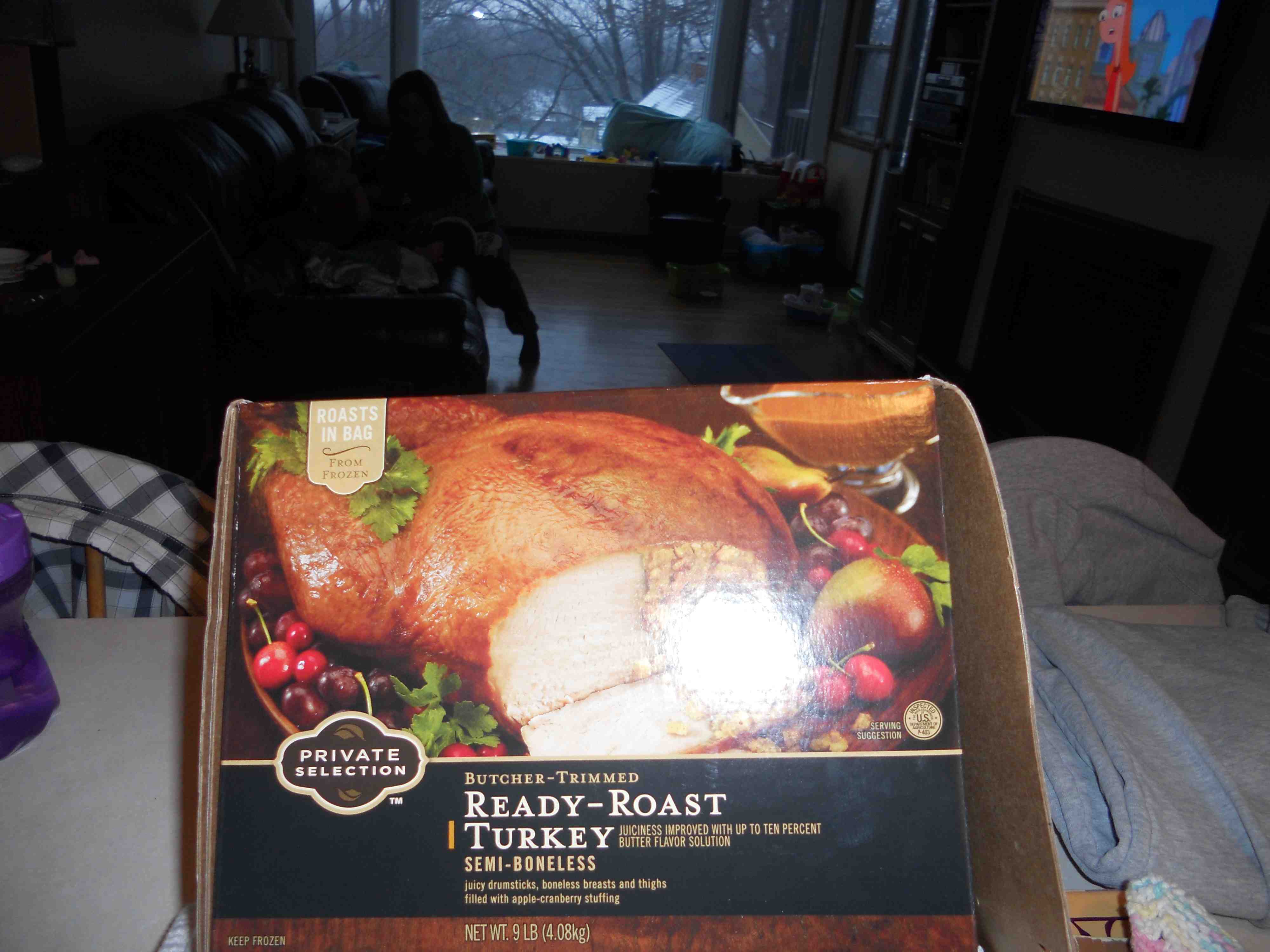 character apparently farting), I took the opportunity to try out the frozen Kroger Private Selection Ready-Roast Turkey.
character apparently farting), I took the opportunity to try out the frozen Kroger Private Selection Ready-Roast Turkey.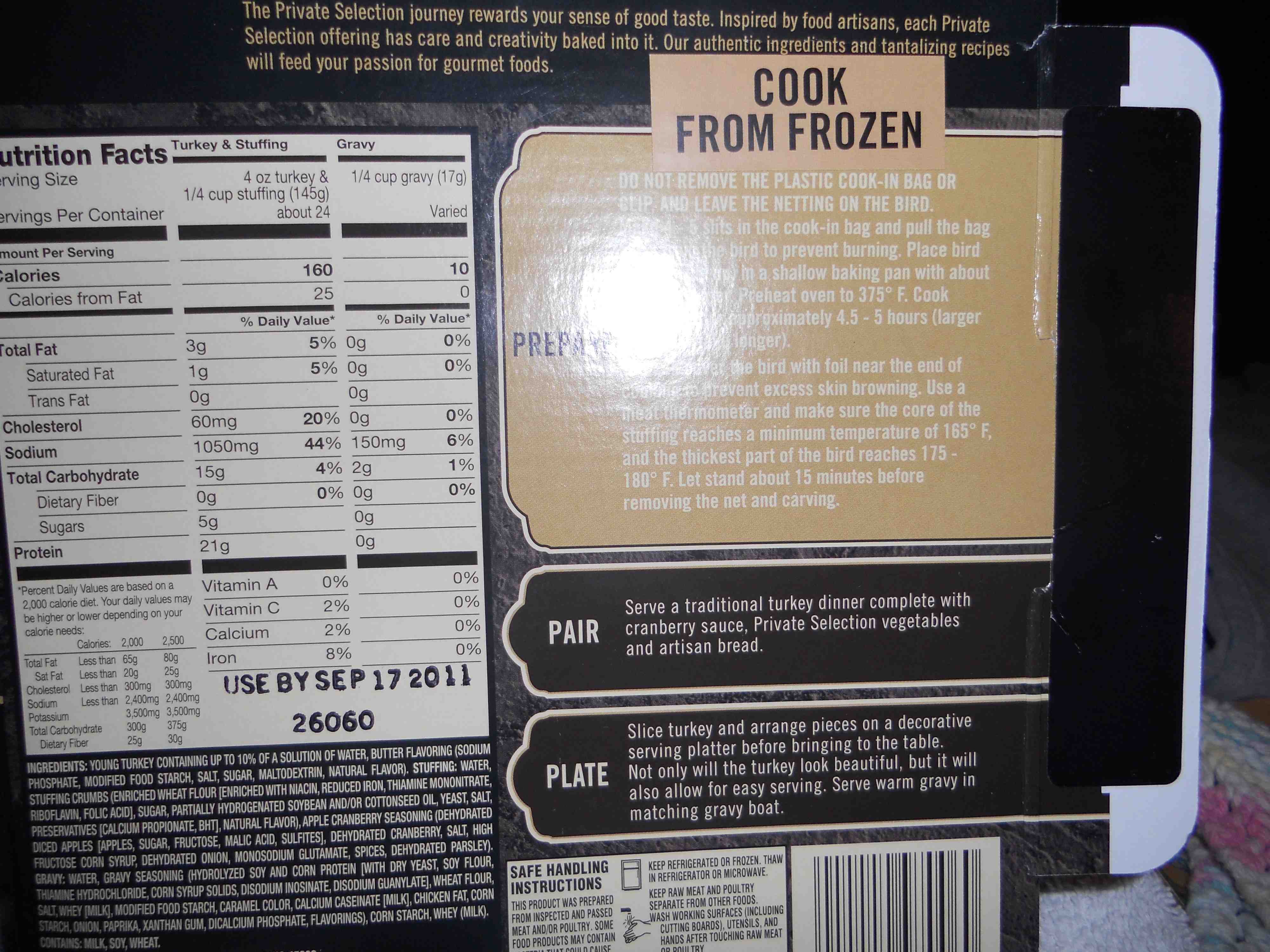 because of the stuffing, not just piping hot), slice and serve with homemade whole wheat rolls from scratch, drink more beer and wine and watch bad football. Converse (not the shoes).
because of the stuffing, not just piping hot), slice and serve with homemade whole wheat rolls from scratch, drink more beer and wine and watch bad football. Converse (not the shoes). chicken were not cooked properly.
chicken were not cooked properly.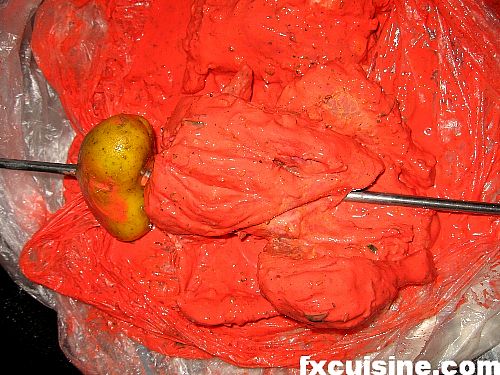 sample and stool samples that were submitted for testing.
sample and stool samples that were submitted for testing. .jpg)
.jpg) At 35 minutes I pull it out and check deep thigh temperature with a Comark PDT 300.
At 35 minutes I pull it out and check deep thigh temperature with a Comark PDT 300.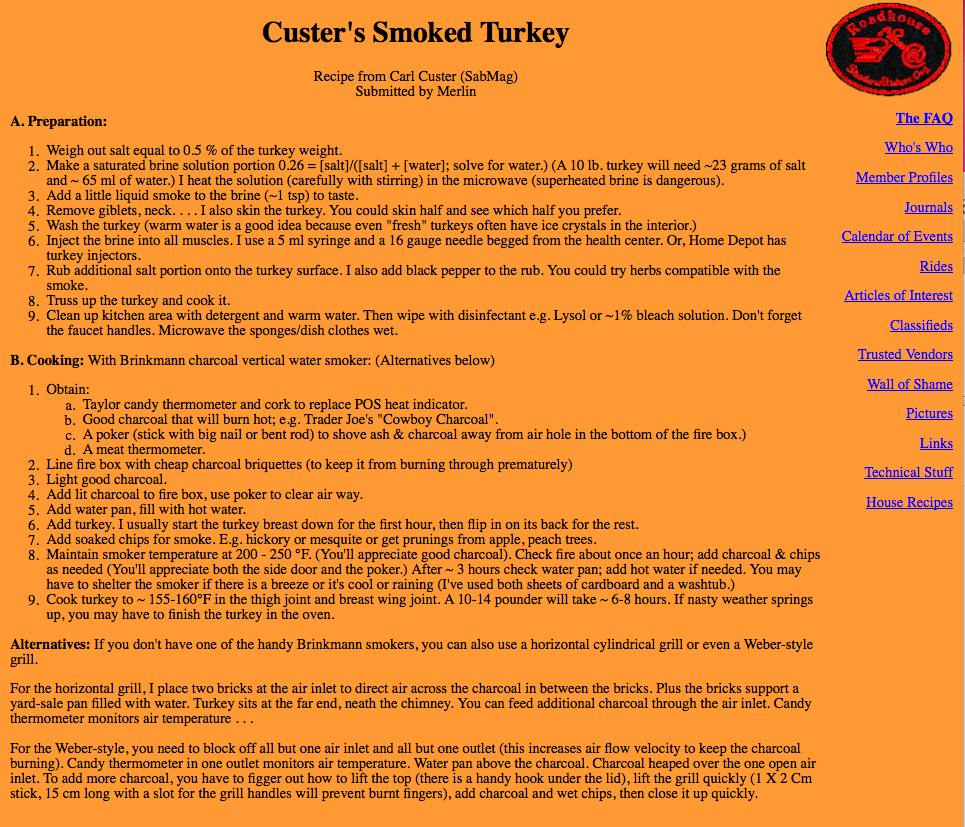
 15-pound turkeys is that the breast was creeping up to 140-150F, while the stuffing and other parts were languishing at 120. Foil over the breast helps, but it’s always a problem;
15-pound turkeys is that the breast was creeping up to 140-150F, while the stuffing and other parts were languishing at 120. Foil over the breast helps, but it’s always a problem;  a safe temperature in the microwave. The remainder of the bird went back in the oven.
a safe temperature in the microwave. The remainder of the bird went back in the oven..jpg)